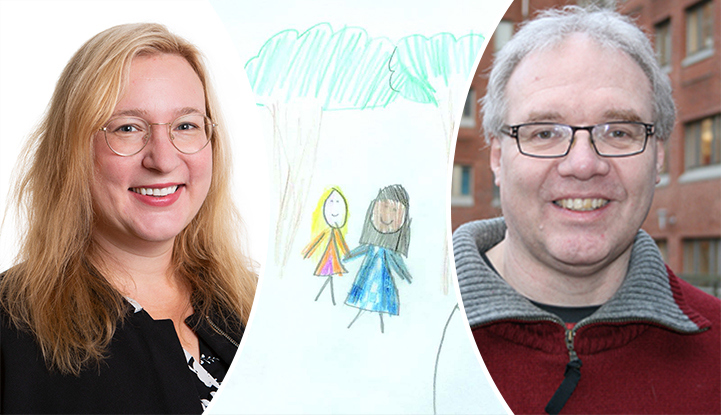“Uncomfortable” — schoolchildren’s experiences of Life Skills Training
2020-12-15

Many schools, both in Sweden and internationally, implement various kinds of social and emotional learning (SEL) programmes. When schools in Sweden focus on common values (värdegrund in Swedish, a broad concept covering morals, social norms, and relationship questions), SEL has often been used in a form known as Life Skills Training (Livskunskap in Swedish). The goal is to foster children’s social and emotional development. Ultimately, such programmes aim to improve the school environment and reduce bullying. The method has received criticism, including from the Swedish National Agency for Education, for violating schoolchildren’s privacy and for exposing students to socially uncomfortable situations. Despite this, there has been a lack of studies that focus on children’s perspectives on participation in such programmes. Göran Jutengren, Associate Professor of Psychology and Eva Medin, MA in Applied Linguistics, both of the University of Borås, have examined children’s experiences of participating in a Life Skills Training programme in a study with second and third graders.
“We saw that among the participating children, there were both strongly negative and positive attitudes. Some thought the programme had a clear focus on learning how to be a good friend, but the fact that only some classes attended was experienced as stigmatising. Several students believed that their classes had been selected to attend the programme because of poor behaviour,” said Göran Jutengren.
Private topics
The results do not show that Life Skills Training is problematic per se, but that its implementation in this programme was problematic in several ways. The children were urged to talk about, say, their experiences of divorce, or to tell the group about the worst and best thing that had happened to them during the past week.
“The children didn’t have the opportunity to make a choice about participation themselves; rather, they were sent to a class to talk about topics that are sensitive and private. One clear result was that the children felt uncomfortable talking about certain issues in a group setting at school,” said Eva Medin.
"The study indicates that it is important to safeguard children's privacy and that children's perspectives and needs should be the basis of school activities. Discussing sensitive topics can also bring up feelings and raise questions that children can need help to work through,” said Eva Medin.
The researchers believe that the extent to which schoolchildren who participate in such programmes appreciate and accept the method as meaningful is important. Otherwise, any positive effects may be at risk, at best. At worst, the effects might even be negative, they argue. It is important, as well, to implement SEL programmes that have been shown to be effective in the relevant culture and local context.
These findings were reported in the article Children’s Perspectives on a School-Based Social and Emotional Learning Program, published in the research journal Children & Schools, 2020.
The Whole Schools project
The study was part of the Whole Schools project, which dealt with active integration work in relation to schoolchildren and their parents. The project was funded by the Public Health Agency of Sweden and implemented in a collaboration between the City of Borås and R&D Sjuhärad Welfare.
One result of the project was a series of practical tips for school staff working in diverse settings that the researchers developed together with parents and children.

